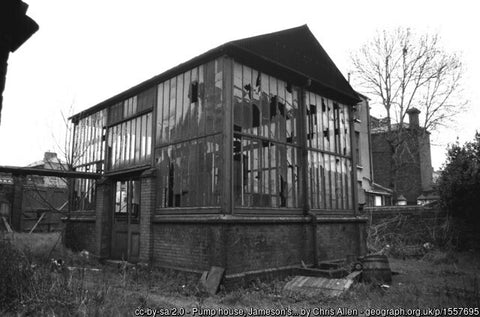

A Hundred Years from Prohibition to the Present: Why Scotland thrived while Ireland fell behind
Share

Front page headlines, and map representing states ratifying Prohibition The New York Times 1/17/1919
It is 100 years and 9 months since the sale of alcohol was prohibited in the US under the 18th Amendment. Ushering in the era known as Prohibition, the production, import, transport, and sale of alcohol was banned. It was, with hindsight, an experiment by the US government to decrease crime rates, lower the tax burden for citizens, and improve the general health of Americans.

Prohibition agents destroying barrels of alcohol, Chicago, 1921, Chicago Historical Society
With exceptions for use by the Churches (and for medicinal bitters and whiskey, which could be up to 50% proof.

Alabamians at a small intimate night time gathering with a reasonable message
Before this, regions in the US could be declared 'dry' and the sale or consumption of alcohol be banned. A driving force for this was that it was believed that campaigning in bars and by bar-owners had swayed elections, as well as being held responsible for public order offences.

2007 Map of 'Dry' V 'Wet' counties. Purple are dry counties, blue are partially dry, green are wet and grey has no data.
A significant loophole was that it was perfectly legal to own and consume your own alcohol, you were still allowed to make your own. Unless it was distilled, which still fell under the ban (with, amusingly, home distillation kits being sold in almost every hardware shop). For 13 years the ban was enforced, until repeal in 1933. Notably the only time an amendment was amended in the US.

As may be seen on their faces, the fight was not going well. Source: Orange County Archive
Many US citizens of Irish and German extraction worked in the brewing and distilling industry and were therefore heavily impacted by Prohibition. The two groups were the largest ethnic groups in the US at this stage and even played a role in delaying the entrance of the US into WW1 due to regard for Germany and anti-British feeling.

An announcement before a movie/news segment was screened in a cinema
An unintended effect from Prohibition was the skyrocketing arrest rate, which led to the plea-bargain being innovated by the legal authorities to stop people being held for years before their cases could be held.

An empty prison, unlike those during Prohibition. Photo:Luis Argerich
What is hard to understand, is how authorities failed to examine their budgets to see that taxes on alcohol contributed ~35% of the federal budget and on average 50% of any given states budget. Income tax, which had been recently brought in to fund spending on WW1, was extended to pay for the deficit.

Orange County Sheriff's deputies dumping illegal booze, Santa Ana. Orange County Archives
At the turn of the century, Irish whiskey was the global superstar of whiskey, it's market share has been estimated at 70% globally, and even outsold Scottish whisky in England. It was such a large part of the economy that ~40% of Dublin's workforce was employed in the distilling and brewing industries.

Pump House in Bow St, Jameson Distillery before redevolpement
With independence in 1922, Ireland lost access to countries still in the British Empire that previously had been major markets. These were the second largest market for Irish whiskey after America. Scotland as part of the Empire, however, was free to sell to other countries that bordered the US and also happened to be part of the British empire, countries like Canada, Bermuda and the Bahamas. These states were utilised by smugglers to source cheap and accessible liquor for transport over the border.

British Empire in 1914
A complicating factor was also the Irish government limited the export of Irish whiskey. It was more profitable for the Irish government tax-wise to encourage domestic consumption. Additionally, as many of the owners of distilleries were Unionists, there was a fear that they would not support the new state. Or work toward its failure, so it was also an effort to limit their power and influence.

Members of the First Irish Dáil (Parliament) 10/4/1919
With all these barriers to export, but with an existing reputation for quality, there was a large counterfeiting trade in the US in 'Irish' whiskey. However, it was normally raw alcohol coloured with caramel, which fatally damaged Irish Whiskey's reputation. Consumers quickly recognised Scotch as a superior product to 'Irish' whiskey, a reputation that has been hard to dislodge to this day. Scottish distillers were superior in the marketing and branding of their product, as well as accepting innovations more readily than the Irish when it came to column stills.
The Scottish adapted quickly to column stills, but Irish producers, partially due to their good reputation at the time, leading to complacency, were slow to adapt.

An Early Column Still in Ireland
Column stills were invented by French-born, Irish raised Aeneas Coffee. He invented a way to continuously distil, rather than having to shut down, clean and recharge, which is needed for pot stills.

Aeneas Coffee
So many Americans switched to eating sweets and drinking tea (government advice to those that missed alcohol) that there was a global shortage in tea in 1924.
After 13 years Prohibition was recognised as a failure and another vote rescinded the first, it was now up to the individual states to regulate alcohol consumption.

Some states were more bashful about repealing Prohibion than others
